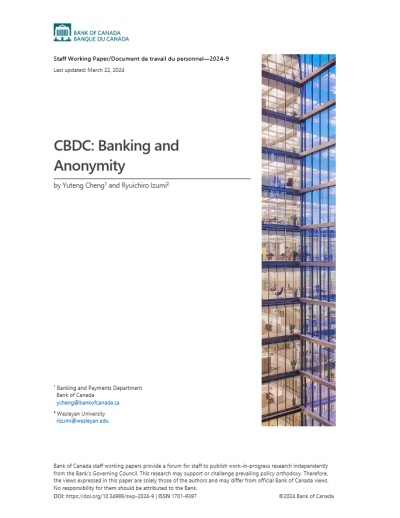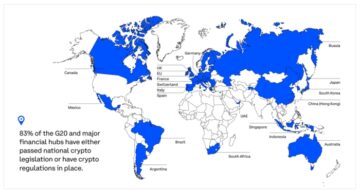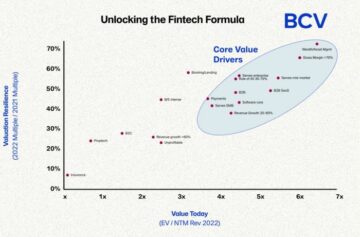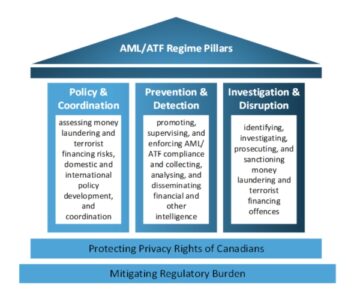Report | March 25, 2024

 Image: BoC Staff Working Report, CBDC: Banking and Anonymity
Image: BoC Staff Working Report, CBDC: Banking and AnonymityBoC Staff Paper Explores the Delicate Balance Between CBDC and Bank Lending
The Bank of Canada published a working staff paper on March 22, 2024 called ‘CBDC: Banking and Anonymity‘ that outlines the intricacies of CBDCs and their impact on traditional bank lending and financial stability.
See: CBDCs in Canada and Impact Drivers on Banking Choices
The Bank of Canada’s study exams how the design of CBDCs, particularly the degree of user anonymity they afford, could influence banking practices, credit allocation, and bank profitability.
The Anonymity Conundrum
When a CBDC offered by the central bank keeps who uses it somewhat secret, it changes how businesses act and how banks decide to give out loans. If the CBDC is a little bit private (modest level of anonymity), it might cause some issues. For example, both successful and less successful business owners might choose to use this digital money, leading banks to lend money without being as careful about who gets it.
The best level of privacy for this digital money depends on how it can help businesses. If the benefits are more like using cash, it should be more private. If the benefits are more like putting money in a bank, it should be less private.
Risks of Bank Disintermediation
The potential for CBDCs to substitute traditional bank deposits threatens to undermine the deposit-lending function of banks. This shift could curtail banks’ lending abilities, thereby impacting their profit margins and stability.
See: Republican Senators Move to Block CBDCs in U.S. (again)
Initial evidence suggests that the announcement of CBDC initiatives negatively affects bank stock prices, particularly those heavily reliant on deposit funding. This market response reflects concerns over banks’ future lending capabilities and overall profitability in a CBDC-dominated financial landscape.
Theoretical models indicate that CBDCs could exacerbate bank failure risks under certain conditions. When banks decide to pay more interest on the money people save with them, they often charge more for loans to make up for this. Also, when borrowers take bigger risks because they think they won’t face the consequences, it can make loans riskier. Both factors can affect how risky a loan is and, in turn, how much profit a bank can make. Banks have to balance making loans available without taking on too much risk.
Outlook
The implementation CBDCs into the financial ecosystem is a double-edged sword, offering unprecedented opportunities for efficiency and inclusivity while posing significant challenges to traditional banking models, and let’s not forget privacy.
See: Bank of Canada Publishes Staff Paper on ‘Unmet Payment Needs and CBDCs
Central banks must consider nuanced effects of CBDC design and their impact on traditional banking structures and lending practices as they look towards the future of banking and monetary policy.

 The National Crowdfunding & Fintech Association (NCFA Canada) is a financial innovation ecosystem that provides education, market intelligence, industry stewardship, networking and funding opportunities and services to thousands of community members and works closely with industry, government, partners and affiliates to create a vibrant and innovative fintech and funding industry in Canada. Decentralized and distributed, NCFA is engaged with global stakeholders and helps incubate projects and investment in fintech, alternative finance, crowdfunding, peer-to-peer finance, payments, digital assets and tokens, artificial intelligence, blockchain, cryptocurrency, regtech, and insurtech sectors. Join Canada’s Fintech & Funding Community today FREE! Or become a contributing member and get perks. For more information, please visit: www.ncfacanada.org
The National Crowdfunding & Fintech Association (NCFA Canada) is a financial innovation ecosystem that provides education, market intelligence, industry stewardship, networking and funding opportunities and services to thousands of community members and works closely with industry, government, partners and affiliates to create a vibrant and innovative fintech and funding industry in Canada. Decentralized and distributed, NCFA is engaged with global stakeholders and helps incubate projects and investment in fintech, alternative finance, crowdfunding, peer-to-peer finance, payments, digital assets and tokens, artificial intelligence, blockchain, cryptocurrency, regtech, and insurtech sectors. Join Canada’s Fintech & Funding Community today FREE! Or become a contributing member and get perks. For more information, please visit: www.ncfacanada.org
Related Posts
- SEO Powered Content & PR Distribution. Get Amplified Today.
- PlatoData.Network Vertical Generative Ai. Empower Yourself. Access Here.
- PlatoAiStream. Web3 Intelligence. Knowledge Amplified. Access Here.
- PlatoESG. Carbon, CleanTech, Energy, Environment, Solar, Waste Management. Access Here.
- PlatoHealth. Biotech and Clinical Trials Intelligence. Access Here.
- Source: https://ncfacanada.org/the-ripple-effect-of-cbdcs-on-bank-lending-and-profitability/
- :is
- :not
- $UP
- 150
- 2018
- 2024
- 22
- 25
- 250
- 33
- 62
- a
- abilities
- About
- Act
- affect
- affects
- affiliates
- afford
- again
- allocation
- also
- alternative
- alternative finance
- and
- Anonymity
- ARE
- artificial
- artificial intelligence
- AS
- Assets
- available
- Balance
- Bank
- bank of canada
- bank profitability
- Banking
- Banks
- BE
- because
- become
- being
- benefits
- BEST
- between
- bigger
- Bit
- Block
- blockchain
- BoC
- borrowers
- both
- business
- business owners
- businesses
- by
- cache
- called
- CAN
- Canada
- capabilities
- careful
- Cash
- Cause
- CBDC
- CBDCs
- central
- Central Bank
- certain
- challenges
- Changes
- charge
- choices
- Choose
- closely
- community
- Concerns
- conditions
- Consequences
- Consider
- could
- create
- credit
- Crowdfunding
- cryptocurrency
- curtail
- decentralized
- decide
- Degree
- depends
- deposit
- Design
- digital
- Digital Assets
- Digital Money
- distributed
- drivers
- ecosystem
- Education
- effect
- effects
- efficiency
- engaged
- Ether (ETH)
- evidence
- exacerbate
- example
- explores
- Face
- factors
- Failure
- finance
- financial
- financial innovation
- financial stability
- fintech
- For
- from
- function
- funding
- funding opportunities
- future
- get
- gets
- Give
- Global
- Government
- Have
- heavily
- help
- helps
- High
- How
- http
- HTTPS
- if
- image
- Impact
- impacting
- implementation
- in
- Inclusivity
- indicate
- industry
- influence
- information
- initiatives
- Innovation
- innovative
- Insurtech
- Intelligence
- interest
- into
- intricacies
- investment
- issues
- IT
- Jan
- jpg
- leading
- LEND
- lending
- less
- let
- Level
- like
- little
- loan
- Loans
- Look
- make
- Making
- March
- margins
- Market
- max-width
- member
- Members
- might
- models
- modest
- Monetary
- Monetary Policy
- money
- more
- move
- much
- must
- needs
- networking
- nuanced
- of
- offered
- offering
- often
- on
- opportunities
- or
- out
- outlines
- over
- overall
- owners
- Paper
- particularly
- partners
- Pay
- payment
- payments
- peer to peer
- People
- perks
- plato
- Plato Data Intelligence
- PlatoData
- please
- policy
- potential
- practices
- privacy
- private
- Profit
- profitability
- projects
- provides
- published
- Publishes
- Putting
- reflects
- Regtech
- report
- Republican
- response
- Ripple
- Risk
- riskier
- risks
- Risky
- s
- Save
- Secret
- Sectors
- SENATORS
- Services
- shift
- should
- significant
- some
- somewhat
- Stability
- Staff
- stakeholders
- Stewardship
- stock
- structures
- Study
- successful
- Suggests
- sword
- T
- Take
- taking
- that
- The
- The Future
- their
- Them
- thereby
- they
- Think
- this
- those
- thousands
- threatens
- to
- today
- Tokens
- too
- towards
- traditional
- traditional banking
- TURN
- u.s.
- under
- Undermine
- unprecedented
- use
- User
- uses
- using
- vibrant
- Visit
- when
- while
- WHO
- with
- without
- Won
- working
- works
- zephyrnet










